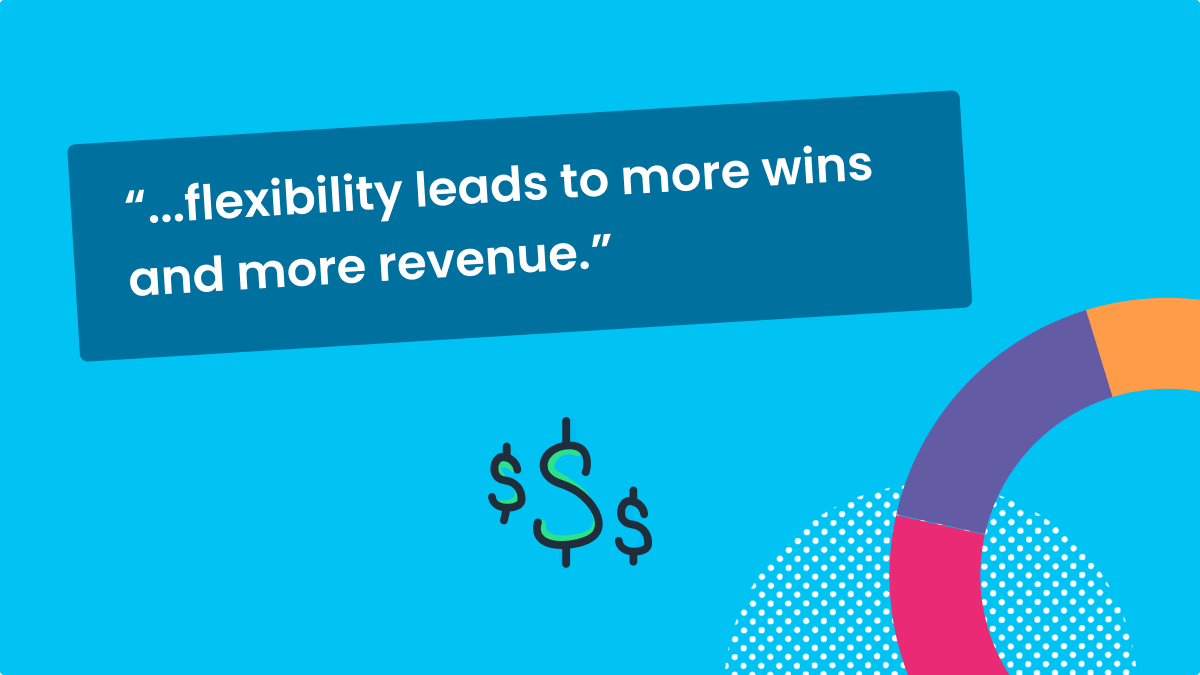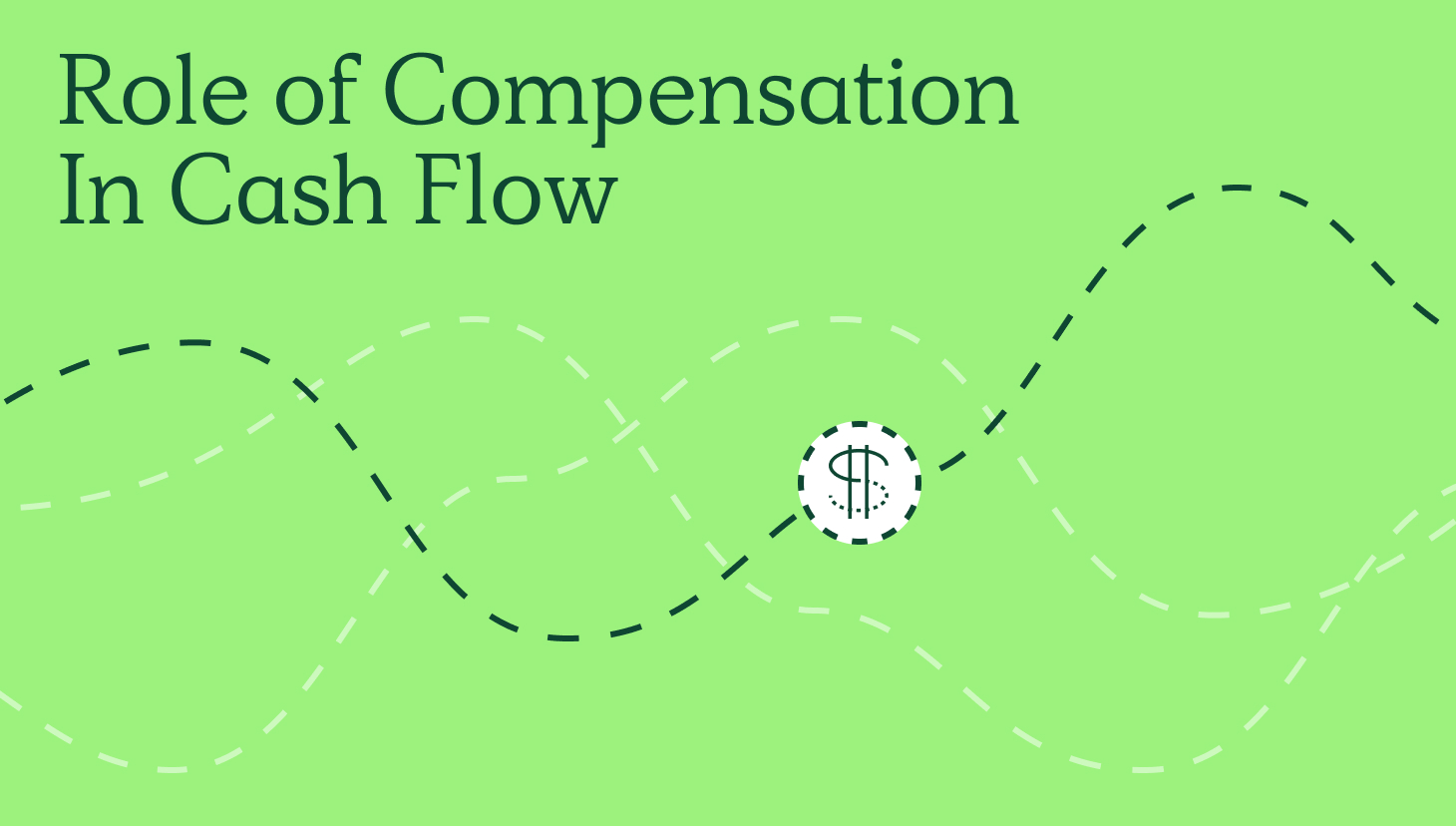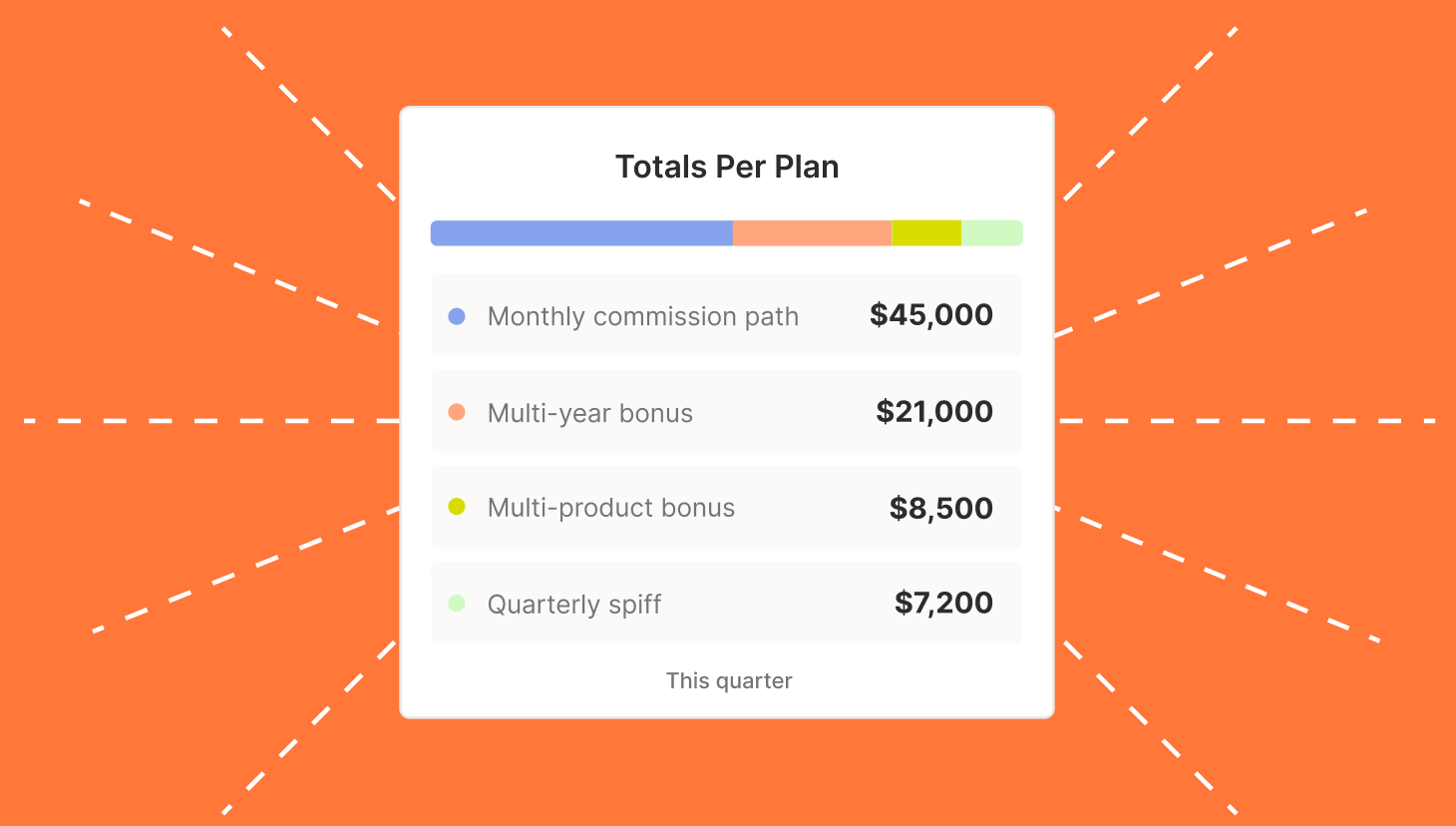Should you pay commissions once the deal closes or wait until the invoice is paid?
According to our 2023 Sales Compensation Trends survey, 64% of companies pay out commissions upon the deal closing versus 20% at the time of invoice payment.
That number shifted to 47% at the time of deal closing and 35% at invoice if the company generated less than $25 million in annual recurring revenue.
But with a harsher market and a higher risk of companies not fulfilling payment obligations, it’s time to rethink commission payment periods.
We realize there are a ton of factors to consider when setting payment terms. (Industry, size of the opportunity, stage of the company, and even new hire ramp time.) So, to help work through those factors, we asked five RevOps and Sales leaders for their takes.
Here’s what they said.
Try QuotaPath for free
Try the most collaborative solution to manage, track and payout variable compensation. Calculate commissions and pay your team accurately, and on time.
Start TrialNatalie Love — Depends on the stage of the company
Natalie Love, Senior Manager of RevOps at 15five, has experienced both commission payout methods.
“When we were an earlier stage company and more manual in our billing and collections processes, we paid upon collection,” Natalie said. “This incentivizes the sales rep to help with collections and ensuring payment.”
However, once they scaled and added automation to their accounts receivable processes, they transitioned to pay on the closed deal. In doing so, they were able to incentivize deal velocity and speed-to-close.
And, to ensure a successful launch of customers, they added a clawback clause.
Carl Ferreira — How you book revenue should dictate payment terms
Meanwhile, Carl Ferreira, Director of Sales at Refine Labs, said the timing of commission payments depends on how your company books revenue.
“Big contracts might have extensive processes, accounts payable departments, and net 90 terms,” said Carl. “If I’m working and selling for SAP, then I shouldn’t have to wait for 90-plus days and another 30 days for the payroll cycle for commissions.”
Reversely, in an early-stage startup, where free cash flow might be limited and the product is more transactional, paying on collection makes sense, Carl added.
At Refine Labs, Carl said his reps receive commissions in the next possible payroll cycle for deals closed won.
“If a deal implodes and never pays, then we issue a clawback. Although, that’s never happened,” Carl said.
Jonathan Slagle — New biz at start date and renewals at invoice
Nearpod Senior Commissions Analyst Jonathan Slagle has worked at two organizations that handled this differently.
One company, for instance, paid on the “effective date,” or the start date.
“For new business, this aligned pretty closely with the close date, but for renewals and upsells tied to their renewal, it could vary by a couple of months or more,” Jonathan said.
So, to account for auto-renewals that triggered or closed extra early in their CRM but were not effective for revenue or case purposes until later, they held payout until redeemable.
“This was at a startup that had a higher frequency of contested autorenewals and invoice ghosting, so the effective date was used to reduce clawbacks and help align commissions with cash flow while not making the reps wait until actual cash flow,” Jonathan said.
At another organization, where the risk of churn post-invoicing was much lower, everything became payable on the close date of the sale.
Winson Liu — Churn risk isn’t a factor
The risk of churn keeps coming up. But On Deck Founder Fellow and RevOps leader Winson Liu offered an alternative view.
“I’d argue that paying reps based on close date doesn’t reduce churn risk, nor does it make churn risk higher,” Winson said.
Rather, customers churn due to account operations, whether that’s owned by accounting, the AE, or the CSM.
“It’s all about how the company overall manages the handoff from signed contract to payment to implementation to product adoption and usage,” Winson said. “At least to me, it’s not a conflated situation.”
Shalhevet Engelson — Paying on invoice limits payment terms creativity
Can payment upon the invoice lead to internal dissonance for the rep? This leader thinks so.
“If you pay reps based on the invoice date, you’re incentivizing reps to be less flexible on payment terms with customers and that might put your reps in a sort of Catch-22,” said Shalhevet Engelson, RevOps Specialist at DealHub.
That’s especially timely in today’s economic climate which has pushed sales teams to get creative on how they structure deals.
“That flexibility leads to more wins and more revenue,” Shalhevet said. “If reps don’t get paid until the invoice, they might want to be flexible with the customer in order to close the deal more easily, but they also might not want to be flexible because they want to get paid sooner.”
Create Compensation Plans with confidence
RevOps, sales leaders, and finance teams use our free tool to ensure reps’ on-target earnings and quotas line up with industry standards. Customize plans with accelerators, bonuses, and more, by adjusting 9 variables.
Build a Comp PlanSo, how have you set up your sales commission payment terms?
As you can see, like most topics with sales and sales compensation, there are no absolute rules. However, there are some organizational indicators that signal one way might be better than another.
Previously, we’ve recommended paying your reps as quickly as you can. However, if you’re hoping to solve for cash flow in 2023, re-defining your payment terms can help address that.
Need additional help with sales compensation management and commission tracking? Schedule time with our team today.



